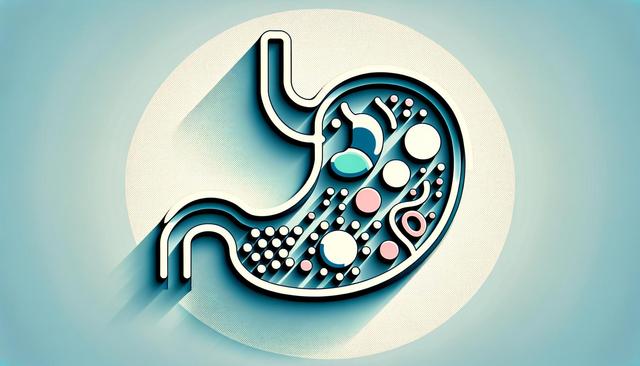Recognizing Digestive Discomfort Early
One of the earliest indicators of stomach cancer often appears as persistent digestive discomfort. While occasional indigestion is common, ongoing symptoms may signal a deeper issue. Individuals might notice frequent bloating, a feeling of fullness after eating small amounts, or mild nausea that doesn’t seem tied to specific foods. These symptoms are often overlooked or attributed to less serious conditions. However, when they persist, they should not be ignored. Recognizing these potential stomach cancer symptoms early can lead to quicker medical consultations and diagnostic testing, improving treatment options and outcomes.
Some common digestive signs to watch for include:
- Heartburn or acid reflux that doesn’t improve with over-the-counter remedies
- Unexplained loss of appetite or difficulty swallowing
- Upper abdominal pain or discomfort
It is important to remember that these symptoms can overlap with other gastrointestinal conditions. However, their persistence is what often differentiates them in the context of stomach cancer causes.
Unexpected Weight Changes and Fatigue
Unexpected weight loss is another early sign that may indicate the presence of stomach cancer. When the body is not absorbing nutrients efficiently, or when a tumor interferes with normal digestion, weight loss can occur even without changes in diet or exercise. This symptom often goes hand-in-hand with chronic fatigue, a result of the body working harder to function under abnormal conditions.
In the early stages, fatigue may seem minor—perhaps just a feeling of being more tired than usual. Over time, it may progress to the point where it interferes with daily activities. Understanding how stomach cancer risk factors contribute to this symptom is essential. For instance, individuals with a history of Helicobacter pylori infection, smoking, or certain dietary habits may be at higher risk and should be more vigilant about these signs.
Signs to look out for include:
- Sudden drop in body weight without trying to lose weight
- Persistent tiredness or weakness, even after adequate rest
- Feeling lightheaded or dizzy due to anemia caused by internal bleeding
Changes in Bowel Habits and Appearance
Alterations in bowel movements or stool appearance can also signal an underlying issue like stomach cancer. Although these signs are common in many gastrointestinal problems, their persistence and progression are key indicators of something more serious. People may notice darker-than-usual stools, which could indicate the presence of blood, or experience constipation and diarrhea that do not resolve over time.
These symptoms are often linked to disruptions in the stomach lining or gastrointestinal tract, which can occur when a tumor begins to develop. Recognizing these changes as potential stomach cancer symptoms is important for early detection. If these signs accompany other symptoms like abdominal pain or weight loss, medical evaluation should not be delayed.
Key signs to monitor include:
- Black, tarry stools that suggest internal bleeding
- Frequent episodes of constipation or diarrhea with no clear cause
- Stools that appear narrower than usual
Nausea, Vomiting, and Feeling Full Quickly
Nausea and vomiting are common stomach-related symptoms, but when they persist or are accompanied by other symptoms, they may point to a more serious issue. Individuals with early-stage stomach cancer often report feeling full shortly after beginning a meal. This sensation, referred to as early satiety, can significantly affect nutrition and overall health.
Vomiting, when it occurs repeatedly or includes blood, is another concerning sign. It may indicate internal bleeding or an obstruction in the stomach. These symptoms can be linked to various stomach cancer causes, including dietary habits, genetic predisposition, or chronic infections. It’s also important to consider that a stomach cancer diet tailored for symptom management can help reduce some of these effects and improve comfort.
Watch for:
- Regular nausea not linked to specific foods or medications
- Vomiting blood or material resembling coffee grounds
- Feeling full after eating only a few bites
Understanding Risk Factors and When to Seek Help
Awareness of stomach cancer risk factors helps individuals take proactive steps toward early detection. Several elements can increase the likelihood of developing this condition, including age, family history, smoking, and certain dietary patterns. Consuming large amounts of smoked or salted foods, low intake of fruits and vegetables, and chronic gastritis can all contribute to risk.
Understanding your own risk profile enables more informed decisions about when to consult a healthcare provider. If you fall into a higher-risk category and notice persistent or unexplained symptoms, it is advisable to seek medical attention promptly. Early screening and diagnostic tests, such as endoscopy or imaging, can identify abnormalities before they become more advanced.
Common risk factors include:
- Family history of stomach or gastrointestinal cancers
- Infection with Helicobacter pylori
- Smoking or heavy alcohol use
- Diet high in processed or preserved foods
Being proactive about health screenings and maintaining a stomach cancer diet rich in fresh fruits, vegetables, and whole grains can support overall digestive health and lower risk.
Conclusion: Prioritizing Awareness and Early Detection
Early detection of stomach cancer can make a significant difference in treatment outcomes and quality of life. By staying informed about stomach cancer symptoms and understanding the role of stomach cancer risk factors, individuals can act quickly when symptoms arise. Paying attention to persistent digestive discomfort, unexpected weight loss, and changes in appetite or bowel habits can help identify warning signs early. Additionally, adopting dietary habits aligned with a supportive stomach cancer diet may contribute to prevention and overall well-being. If you notice ongoing or worsening symptoms, seeking medical evaluation is an important step toward timely diagnosis and effective stomach cancer treatment.
